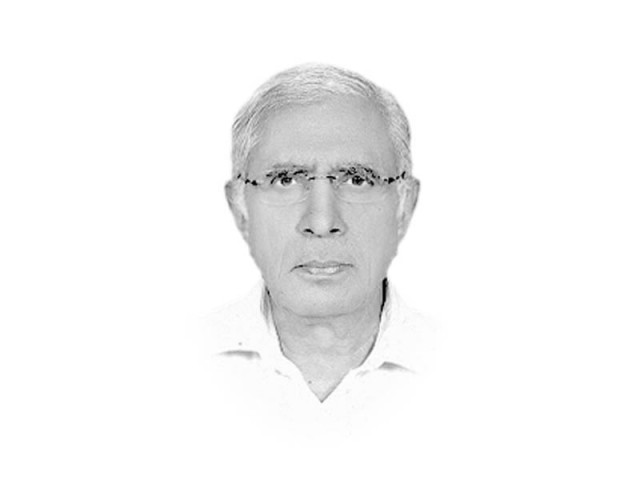The other half of the whole truth
No efforts were made to use the massive fiscal space made available by 9/11 related largesse to expand infrastructure

He is partly right. A large part of these billions had come in the shape of written-off loans amounting to almost $2 billion, debt rescheduling amounting to $12.5 billion, resulting in cash flow savings of nearly $3 billion through to 2004 and as much as $8 billion in US military assistance that did not appear on the budget books. The US economic assistance during that period amounted to no more than $3 billion. All this was in return for allowing the US to use Pakistan’s airspace and a couple of our air bases, grant of land access to Afghanistan and employment of our army, police and paramilitary units to capture al Qaeda members fleeing from Isaf troops occupying Afghanistan.
And to the IMF, Islamabad had promised, in return, to root out corruption, improve the tax-to-GDP ratio and introduce fiscal discipline. But instead of capitalising on the good times, Pakistan reverted back to its old ways. No efforts were made to use the massive fiscal space made available by the 9/11 related largesse to expand infrastructure, especially the power generation capacity. The proceeds from sales of profitable units were not used, as promised, to retire past debt. On the other hand, since most of these public sector utilities, like the highly profitable Pakistan Telecommunication Corporation and shares of lucrative banks were sold to foreign investors, a lot of foreign exchange started going out in the shape of profit repatriation. Little or no progress was made in introducing Value Added Tax or implementation of a broad-based GST, taxing farm income, expanding the coverage of GST on services, liberalisation of administered prices, determining utilities tariffs, introducing reforms in income tax, power sector and public sector enterprises which are still a considerable drain on budgetary resources. Instead, this generous fiscal space was used to promote consumerism and corruption which resulted in expanding the black economy to almost twice the size of the white economy and almost doubling the oil import bill.
It was not only on the economic front that the Musharraf regime had failed to capitalise when the going was so good; it also failed to take care of the crisis for which he had received such generous help from the world. Instead of nipping the menace of terrorism in the bud, the regime allowed it to flourish. The Punjabi Taliban and the Tehreek-e-Taliban Pakistan (TTP) in-the-making had begun launching attacks against our troops and indulging in sectarian massacres. And rather than confronting them with the full force of our army’s might, Musharraf began entering into peace deals with what he described as the ‘good’ Taliban only to further embolden the enemy which kept breaking these accords with impunity. Even the GHQ and the air force and naval installations had come under their attack. And finally, when the May 2013 elections were announced the TTP publicly declared that it would not let the PPP, the ANP and the MQM hold any election rallies. And both, Nawaz Sharif and Imran Khan, by not denouncing and condemning the TTP threat, joined rather circuitously in what can only be described as a pre-poll rigging campaign favouring their respective parties.
Published in The Express Tribune, December 24th, 2014.
Like Opinion & Editorial on Facebook, follow @ETOpEd on Twitter to receive all updates on all our daily pieces.














COMMENTS
Comments are moderated and generally will be posted if they are on-topic and not abusive.
For more information, please see our Comments FAQ